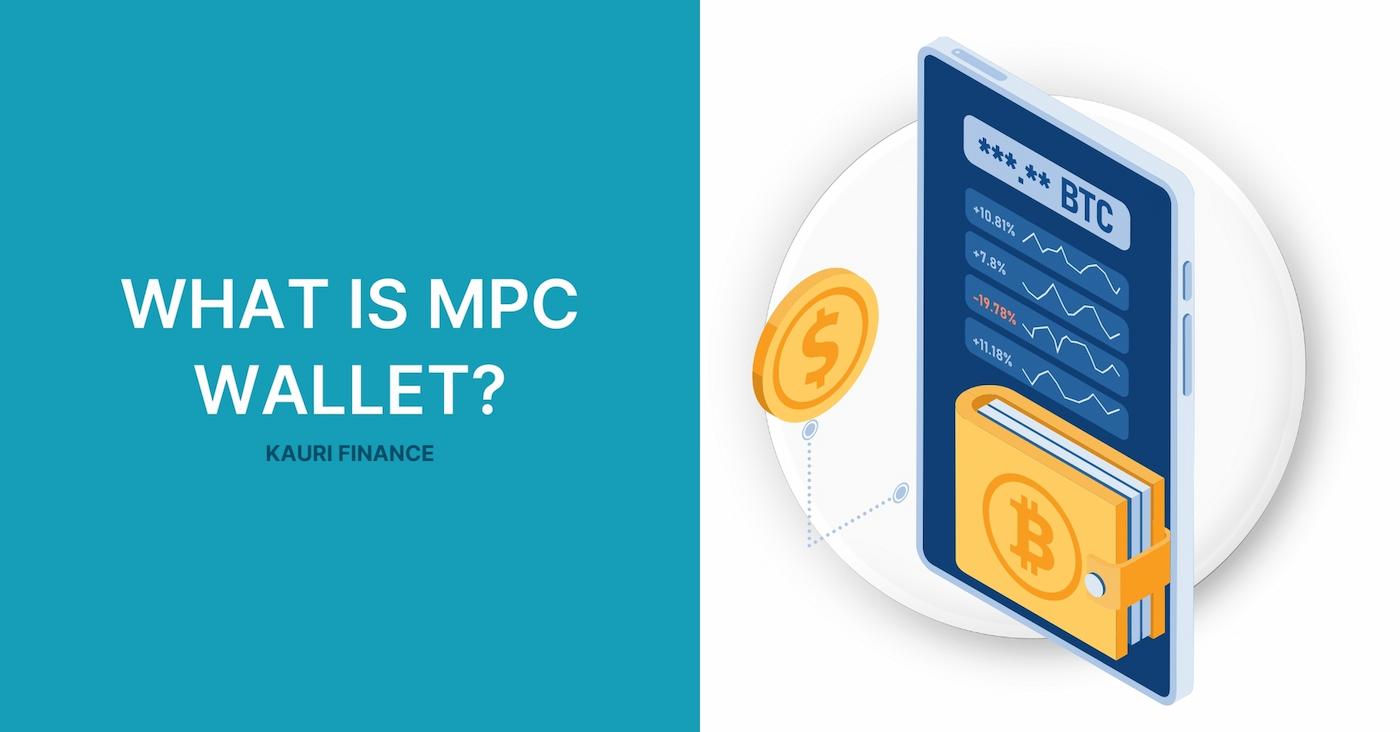
What is MPC Wallet? (Multi Party Computation)

Security vulnerabilities are raising the alarm among users and companies, emphasizing the need for robust solutions to protect the digital commons.
Thus, the implementation of effective security measures is moving from desirable to the list of critical. It is not just a preference, but a key enabler for the industry's growth and expanding market acceptance by increasing trust through the protection of digital assets.
Kauri Finance meets these security challenges by providing an advanced MPC (Multi-Party Computation) based wallet solution complemented with advanced storage capabilities. This platform is designed specifically for the needs of Web3 enterprises.
In this article, we will discuss the basic principles of MPC technology underlying MPC wallets and highlight their advantages over traditional security methods. We will start by looking at MPC wallets as a new standard in digital asset security.
What is MPC Wallet?
The MPC (Multi-Party Computation) wallet is an advanced method of protecting digital assets based on the principle of sharing a secret among multiple participants in such a way that the consent of all or part of the participants is required to perform a transaction or access funds. This approach provides a high level of security because the private key is never completely collected in one place and therefore becomes inaccessible to potential attackers.
MPC technology emerged in the 1980s as part of research in cryptography and information theory. Over time, its potential for providing privacy and security in a variety of applications, including financial services, has become apparent. In the context of cryptocurrency wallets, MPC has begun to be applied to address the challenges associated with storing and managing private keys, providing improved protection against cyberattacks and physical access by attackers.
The application of MPC technology in cryptocurrency wallets achieves security at the level of institutional standards, facilitating asset management and transactions for businesses and individual users. An important aspect is the ability to create backups and restore access without the risk of private key leakage, making MPC wallets one of the most reliable solutions in today's digital asset market.
Benefits of MPC Wallet
The benefits of Multi-Party Computation (MPC) based wallets go beyond conventional approaches to security in the cryptocurrency world. They offer a unique combination of security, convenience, and flexibility that makes them an ideal choice for a wide range of users, from individual investors to large enterprises.
Enhanced security and single point of failure protection:
MPC wallets distribute secret data among multiple parties, ensuring that the full private key is never stored in a single location. This reduces the risk of key compromise and makes the system resilient to attacks targeting a single point of failure.
Transparency and control for users without sacrificing usability:
MPC wallets give users full control over their digital assets while simplifying the process of managing those assets. By sharing a secret, users can easily regain access to their funds if they lose their device or keys without fearing for the security of their assets.
Ability to collaboratively manage assets and create multi-signature transactions:
MPC wallets are ideal for organizations and user groups that need to collaboratively manage assets. They allow rules to be customized to create transactions that require multiple signatures from different participants, thereby providing an additional level of security and control over financial transactions.
Together, these advantages make MPC wallets particularly attractive for usage scenarios that require a high level of security, transparency and efficiency. Given these qualities, MPC wallets are gaining popularity as one of the most promising solutions for storing and managing digital assets.
Practical applications of MPC Wallet
The practical applications of MPC (Multi-Party Computation) wallets cover a wide range of scenarios, from individual use to corporate asset management solutions. These wallets provide the user with enhanced security and flexibility, making them an ideal choice for a variety of digital asset needs.
Personal Storage and Investing:
For individual users, MPC wallets offer a secure and convenient way to store cryptocurrencies. By splitting the key into multiple parts, users get an extra layer of protection for their investments against hacker attacks and phishing. This is especially important for long-term investors and holders who store significant amounts in cryptocurrencies.
Corporate Asset Management:
In a corporate environment, MPC wallets can be used to collaboratively manage crypto assets, giving companies the ability to set up multi-signature procedures to execute transactions. This enhances the security of corporate finances by protecting against internal fraud and error, as well as ensuring regulatory compliance.
Payment systems and banking solutions:
MPC-based wallets are finding applications in payment systems and banking products, enabling secure transactions in an environment that supports cryptocurrencies. Due to the ability of MPC wallets to integrate with traditional financial institutions, users can enjoy a smooth transition between fiat and crypto assets.
Platforms and services that offer MPC-based solutions:
There are many platforms and services that offer solutions based on MPC technology. Examples include Kauri Finance, which specializes in providing enterprise MPC wallets with advanced management and security features. Other notable players in this space include Fire Blocks, Unbound Security and ZenGo, each offering unique features and benefits for different types of users, from startups to large enterprises.
What’s next for MPC?
The future of MPC technology is set to redefine the landscape of digital asset security. As adoption by major financial players like BNY Mellon and Revolut underscores its importance, the journey of MPC is evolving far beyond a single solution approach. In the realm of cybersecurity, a comprehensive, multi-layered defense strategy proves most effective in thwarting potential breaches. This principle holds true for digital asset protection, where coupling MPC with an array of both software and hardware safeguards creates a formidable barrier against unauthorized access.
Innovation continues to propel MPC forward, integrating it with cutting-edge security methodologies to address the ever-growing challenges in the digital domain. By leveraging advanced algorithms and reinforcing security with robust hardware measures, solutions like those provided by leading security platforms are pioneering the path towards a fortified digital future. These enhancements in MPC technology not only elevate the security standards but also introduce greater versatility in managing and safeguarding digital assets, marking a new era in the convergence of security and innovation.
